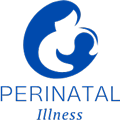What is perinatal mental health? Perinatal mental health is the “emotional and psychological wellbeing of women, encompassing the influence on infant, partner and family, and commencing from preconception through pregnancy and up to 36 months postpartum.” Perinatal mental health conditions include depression, the baby blues, anxiety, and puerperal psychosis.
Perinatal Depression
Depression can affect a woman during her pregnancy which is known as antenatal depression or after giving birth which is known as postpartum/postnatal depression. Both of which are much more common than you may think. Symptoms of depression include: decreased concentration, energy levels, and motivation, significant changes in your eating and sleeping routines, low mood, lack of interest in what is going on around you, and persistent thought of suicide and/or death. Some new mothers also feel that they are a failure or feel inadequate, guilty, full of shame, or hopelessness which are also very common symptoms of depression.
Antenatal Depression
Affecting women during pregnancy due to stress and worry, antenatal depression is a precursor to postpartum depression. Being depressed during pregnancy can affect how your fetus developments in a negative way, which can not only harm your fetus but also yourself. There will always be a new mixture of hormones and emotions that come with pregnancy such as mood swings, memory change, irritability, sadness, etc. but allowing them to develop into antenatal depression and not seeking proper treatment can cause serious danger to you and your fetus as mentioned above.
Postpartum Depression
According to the Centers for Disease Control and Prevention (CDC) 8 to 19% of women in the United States (US) experienced postpartum depression symptoms in 2013 and 8% of pregnant women experienced major depression. [1] In the UK it has been estimated that 10-15% of new mothers experience postnatal depression. [3] However, like many other conditions, there are unreported cases and people are afraid to seek help. Postnatal depression is actually much more common than we think, making experts believe that these percentages are only half of those who are actually suffering from postnatal depression and relate symptoms.
What about the father? Men can also experience postnatal depression, which is obviously associated with slightly different symptoms but non-the-less the same. In 2013, approximately 4% of men within the US experienced depression in the first year of their child’s life. [1]
The Baby Blues
Most women experience the baby blues, as it is the most common yet less serious condition of perinatal mental health. Unlike other conditions the baby blues usually does not require treatment and passes within a few days, after much needed rest and bouncing back from giving birth. Symptoms of the baby blues are similar to that of depression and include a low mood, being sad/tearful, feeling anxious or irritable, and having difficulty sleeping. If these symptoms continue for more than two weeks you should consult a health professional.
Anxiety
Some studies show that anxiety is more prevalent among new mothers than that of depression; however there is no clear link to why this occurs. Anxiety is a feeling of nervousness, unease, or worry about something with an uncertain outcome. Also known as a ‘protective’ emotion that is used in situations of danger. Symptoms of anxiety include feelings of nervousness, nausea, restless, or sense of bread, finding it hard to relax, and having stomach pains or a racing mind. Health professionals may prescribe you a medication in order to help you cope with anxiety if your anxiety meets the criteria for an anxiety disorder.
Postnatal Psychosis
The least common, yet most serious condition of perinatal mental health is psychosis. Very few women are affected by this condition (one to two in a thousand) after giving birth. Although this is condition is more likely to affect women who have a history or family history of mental illness it can affect anyone. Symptoms of psychosis include severe mood swings, hallucinations/delusions, significantly reduced need for sleep, and confused/erratic behavior. Women with these symptoms should consult a health professional immediately as they may cause harm to themselves and/or their baby. Psychosis can be treatment with early intervention and treatment/help from a health professional.
Perinatal Mental Health Treatment
Most perinatal mental health conditions will require treatment lasting from six weeks up to two years or more depending on the severity of the condition. There are a number of perinatal mental health rehabilitation facilities around the world today that solely focus on helping mothers-to-be and new mothers overcome these conditions so that they can enjoy their time as a new mother. Making life-long memories with their child and watching them grow up is any new mother’s dream, with the treatment and overcoming of perinatal mental health this is made possible.
References:
- Centers for Disease Control and Prevention. (2013, November 13). Depression among women of reproductive age . Retrieved from http://www.cdc.gov/reproductivehealth/depression/
- NHS. (2012, April 19). Postnatal depression. Retrieved from http://www.nhs.uk/conditions/postnataldepression/pages/introduction.aspx
